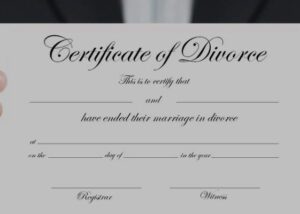Is it true that three divorces in one go (Majlis) count as one not three?
Quran
Hadith
Islamic Text
No, it is not true that three divorces in one go (Majlis) count as one not three. Rather they count as three and the marriage is irrevocably terminated.
أَنَّ أَبَا الصَّهْبَاءِ، قَالَ لِابْنِ عَبَّاسٍ: هَاتِ مِنْ هَنَاتِكَ، «أَلَمْ يَكُنِ الطَّلَاقُ الثَّلَاثُ عَلَى عَهْدِ رَسُولِ اللهِ صَلَّى اللهُ عَلَيْهِ وَسَلَّمَ، وَأَبِي بَكْرٍ وَاحِدَةً»؟ فَقَالَ: «قَدْ كَانَ ذَلِكَ، فَلَمَّا كَانَ فِي عَهْدِ عُمَرَ تَتَايَعَ النَّاسُ فِي الطَّلَاقِ، فَأَجَازَهُ عَلَيْهِمْ
Abu al-Sahbaa said to Ibn Abbas (May Allah Most High be pleased with them both), instruct us from your remarkable knowledge, were three divorces treated as one during the era of the Messenger of Allah ﷺ and Abu Bakr (May Allah Most High be pleased with him). He said, ‘It was so, but during the caliphate of Umar (May Allah Most High be pleased with him) people began to pronounce divorce one after the other. Therefore, he (Umar) considered it so for them.’ (Sahih Muslim 1472 – 17).
It is incredibly important for Muslims to study the Fiqh of marriage and divorce prior to marriage. If they did not do so then they must study it immediately. Too many Muslims make grave mistakes regarding divorce due to a lack of study and relying upon hearsay.
One of the common misunderstandings that has become manifest in recent years is the issue of three divorces in one go (Majlis) counting as one and not three. Many people who promote this opinion quote the Hadith above. There are other similar narrations in Sahih Muslim (1472 – 15 and 1472 – 16).
However, this Hadith has been grossly misunderstood by such people. Many of them quote the Hadith narration and then say, we will turn away from the opinion of Umar (May Allah Most High be pleased with him) and follow the Prophet ﷺ. They do not realise the enormity of the accusation they are making against Sayidina Umar (May Allah Most High be pleased with him).
Would Sayidina Umar (May Allah Most High be pleased with him) knowingly oppose the holy Prophet ﷺ? If he did such a thing then where would that leave Sayidina Umar (May Allah Most High be pleased with him)? What is the ruling regarding a person who knows the Prophet ﷺ taught something and turns away from it, and teaches something contrary to it?
This interpretation not only leads to abhorrent accusations against Sayidina Umar. It is also an indictment of the Sahabah (May Allah Most High be pleased with them). Why did they allow for such a thing? How could they remain silent?
Therefore, this interpretation is a clear error. Rather the understanding of the classical scholars of Islam, including the four Madhabs, absolves Sayidina Umar and the Sahabah of such repulsive allegations. It is simply a matter of understanding the context.
وَرَدَ فِي تَكْرِيرِ اللَّفْظِ كَأَنْ يَقُولُ أَنْتِ طَالِقٌ أَنْتِ طَالِقٌ أَنْتِ طَالِقٌ وَكَانُوا أَوَّلًا عَلَى سَلَامَةِ صُدُورِهِمْ يُقْبَلُ مِنْهُمْ أَنَّهُمْ أَرَادُوا التَّأْكِيدَ فَلَمَّا كَثُرَ النَّاسُ فِي زَمَنِ عُمَرَ وَكَثُرَ فِيهِمُ الْخِدَاعُ وَنَحْوُهُ مِمَّا يَمْنَعُ قَبُولَ مَنِ ادَّعَى التَّأْكِيدَ حَمَلَ عُمَرُ اللَّفْظَ عَلَى ظَاهِرِ التَّكْرَارِ فَأَمْضَاهُ عَلَيْهِمْ وَهَذَا الْجَوَابُ ارْتَضَاهُ الْقُرْطُبِيُّ وَقَوَّاهُ بِقَوْلِ عُمَرَ إِنَّ النَّاسَ اسْتَعْجَلُوا فِي أَمْرٍ كَانَتْ لَهُمْ فِيهِ أَنَاةٌ وَكَذَا قَالَ النَّوَوِيُّ إِنَّ هَذَا أَصَحُّ الْأَجْوِبَةِ. (فتح الباري شرح صحيح البخاري)
That occurred in a situation where the word was repeated intending emphasis (not another divorce). They would say, you are divorced, you are divorced, you are divorced (intending emphasis, not the occurrence of further divorces). Since the people were more reliable (in the time of the Prophet ﷺ), their word was taken.
When the community increased in the time of Umar, and deception and the like increased too. Which caused doubt regarding the claim that they said it (you are divorced, a second or third time) intending emphasis. Therefore, (Sayidina) Umar judged their words according to the outward reality, which is that there was repetition (of divorce). So, he said it has occurred repeatedly.
(Imam) al-Qurtubi was convinced by this explanation and supported it with the statement of Umar (May Allah Most High be pleased with him), ‘Indeed people have become hasty regarding something they were restrained in (meaning, they used to divorce once and now they do it thrice).’ Imam al-Nawawi also said this is the soundest explanation. (Imam Ibn Hajr al-Asqalani, Fath al-Bari).
In the Nass (text) above Imam Ibn Hajr al-Asqalani narrates that Sayidina Umar’s opinion did not contradict the holy Prophet ﷺ in any way. Rather people’s actions changed. The situation was different so the legal ruling was different. This was the explanation of the Hanafi scholars too.
قَوْلَ الزَّوْجِ أَنْتِ طَالِقٌ أَنْتِ طَالِقٌ أَنْتِ طَالِقٌ كَانَتْ طَلْقَةً وَاحِدَةً فِي الْعَصْرَيْنِ لِقَصْدِهِمْ التَّأْكِيدَ وَالْإِخْبَارَ وَصَارَ النَّاسُ بَعْدَهُمْ يَقْصِدُونَ بِهِ التَّجْدِيدَ وَالْإِنْشَاءَ فَأَلْزَمَهُمْ عُمَرُ ذَلِكَ لِعِلْمِهِ بِقَصْدِهِمْ يَدُلُّ عَلَيْهِ قَوْلُ عُمَرَ قَدْ اسْتَعْجَلُوا فِي أَمْرٍ كَانَتْ لَهُمْ فِيهِ أَنَاةٌ. (تبيين الحقائق شرح كنز الدقائق)
The husband’s saying, you are divorced, you are divorced, you are divorced was considered one divorce in the two eras (era of the holy Prophet ﷺ and of Sayidina Abu Bakr), because the people were repeating it with the intention of emphasis and notification. Later people were repeating it with the intention of recurrence and pronouncement. Therefore, Umar (May Allah Most High be pleased with him) made it binding upon them, due to his knowledge of what they were doing. This is evidenced by the statement of Umar (May Allah Most High be pleased with him), ‘Indeed they have become hasty regarding something they used to exercise restraint in.’ (Imam Fakhr al-Deen al-Zaylai, Tabyeen al-Haqaaiq).
Imam Ibn Hajr further explained that the Sahabah would not have accepted it. However, he also clarified that Sayidina Umar is completely innocent of such accusations.
فَإِنَّ عُمَرَ لَا يَنْسَخُ وَلَوْ نَسَخَ وَحَاشَاهُ لَبَادَرَ الصَّحَابَةُ إِلَى إِنْكَارِهِ. (فتح الباري شرح صحيح البخاري)
Indeed Umar (May Allah Most High be pleased with him) cannot abrogate (the Sharia). If he had done so, rather he is innocent of it, the Sahabah would have rushed to condemn him. (Imam Ibn Hajr al-Asqalani, Fath al-Bari).
It is clear that the Sahabah agreed with Sayidina Umar on this issue. No opposition is narrated and leading jurists (Fuqahaa) like Sayidina Abdullah bin Abbas gave the same Fatwa as Sayidina Umar (see link below for details). Imam Ibn Hajr referred to this and pointed out that Sayidina Ibn Abbas would not go against the Hadith he narrated.
لَا يُظَنُّ بِابْنِ عَبَّاسٍ أَنَّهُ يُحْفَظْ عَنِ النَّبِيِّ صَلَّى اللَّهُ عَلَيْهِ وَسَلَّمَ شَيْئًا وَيُفْتِي بِخِلَافِهِ. (فتح الباري شرح صحيح البخاري)
It is not acceptable to postulate that Ibn Abbas memorised something from the Prophet ﷺ and gave Fatwa in opposition to it. (Imam Ibn Hajr al-Asqalani, Fath al-Bari).
Some try to make the argument that Sayidina Umar was not aware of the position the Holy Prophet ﷺ had taught. This is demonstrably incorrect. Simply returning to the narrations in Sahih Muslim will prove that Sayidina Umar knew of what the Prophet ﷺ had taught. As did Sayidina Abdullah ibn Abbas. They and the other Sahabah were implementing the teachings of the Holy Prophet ﷺ, they were not opposing them.
When interpreting verses of the Holy Quran or noble Hadith, Muslims must make sure they do not end up contradicting other verses or Hadith narrations. Such as those that praise the Sahabah and absolve the greatest of them of extreme misguidance. How can it be that Sayidina Umar is promised Paradise in a Hadith and he then directly opposes the teachings of the Holy Prophet ﷺ, and prefers his own opinion over that of the Prophet ﷺ. This is simply not possible.
And Allah Most High Knows Best.
-Answered by Shaykh Noorud-deen Rashid (27.06.2022)
See also:
Is saying “you are divorced” three times in one go considered as one divorce?
Did the Prophet consider three divorces to be three on occasions?
See also:






